Contraluz | Interview | ‘Americanos’ reissue
The highly collectable debut album by Contraluz, originally released in 1973 on EMI, is a masterpiece from the prolific Argentinean band mixing a variety of influences.
PQR-Disques plusqueréel recently reissued ‘Americanos’. The reissue album includes two bonus tracks, redesigned back-cover and is hand-numbered to 200 copies (100 in black, 50 in gold and 50 in red vinyl). This is a pure ear-pampering experience for those who crave in-your-face hard sonic assaults and ferocious rhythm-sections, topped up with majestic flutework and glimpses of prog serenity around the edges. The legendary ‘Americanos’ is packed with sticky tunes, from the homonymous opening track, a straight psych-folk anthem of comparable gravitas to Jaivas’ ‘Todos Juntos’, the acid-drenched ‘Clave De Sol’ and ‘La Sarna Del Viento,’ to the ethereally proggy ‘El Charco’.
Members of the band were Carlos Barrio (guitar, flute), Néstor Barrio (drums), Alfredo “Freddy” Prochnik (bass), Alejandro Barzi (flute, vocals), Álvaro Cañada (vocals, 1973-74), Gustavo Dinerstein (flute, saxophone, 1973-74), Jorge Guarnieri (vocals, guitar, 1973-74).
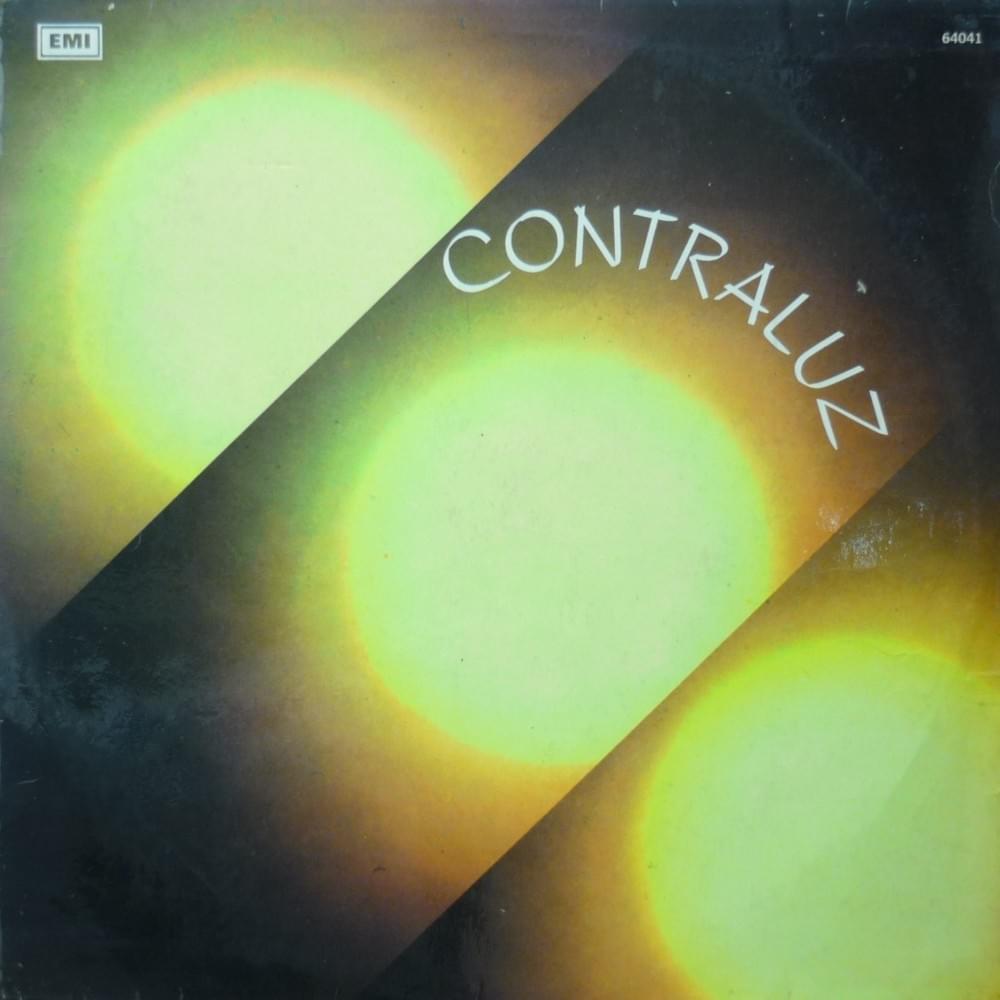
“In 1975 the release of our new album ‘Que Tu Voz Se Escuche’ was blocked”
Your 1973 record, ‘Americanos’ is among the heaviest albums from Argentina and the continent itself. Would you speak about some of the influences that helped you develop the Contraluz sound?
Carlos Barrio, Néstor Barrio, Alfredo Prochnik: Contraluz had several musical influences. We were especially influenced by the English band Jethro Tull, but there was also a strong influence coming from Argentine rock and folklore music.
Tell us about your upbringing? Where were members of the band born and how did you first get interested in music?
The band members are all Argentines. Our interest in music comes from our high school. Our first important influence was The Beatles and secondly all the progressive rock bands that were emerging, with a special preponderance of symphonic rock.
You originally started as a band named Lemon, playing beat music?
It is true that our band started out as Lemon. In that first period we made songs by other bands.
Then you renamed your band to Celofan?
With the evolution of the band we changed the name to Celofan, but this name lasted only 24 hours, since it was a trademark of Dupont and they contacted us and asked us to stop using this name, which we did immediately so as not to have any legal issues.
Are there any recordings left of those early incarnations of the group?
I remember that in Lemon’s time we recorded a song composed by me for a music festival in Chile. It was something punctual and very basic, from the beginning of the band.
When did you rename the band to Contraluz? Were you at first a trio?
When we began to compose our own songs we decided to change the name of the band to one in Spanish and we named it Contraluz.
With Contraluz in the beginning we were four musicians. Carlos Barrio on guitar, Néstor Barrio on drums, Alfredo Prochnik on bass and Alejandro Barzi on flute and voice.
With the arrival of the fourth member Alejandro Barzi, the band got a flute which was quite significant for the band’s sound.
Alejandro Barzi is the one who introduces us to Jethro Tull and the flute, giving the band a very important turn in every way.
Tell us about some of the early gigs you had? What were some of the venues you played and what are some other bands you shared stages with?
Contraluz began playing in the northern area of Buenos Aires, in schools. Then we began to perform recitals in theaters. We had the opportunity to play at that time with some very significant national rock bands such as Almendra (Luis Alberto Spinetta).
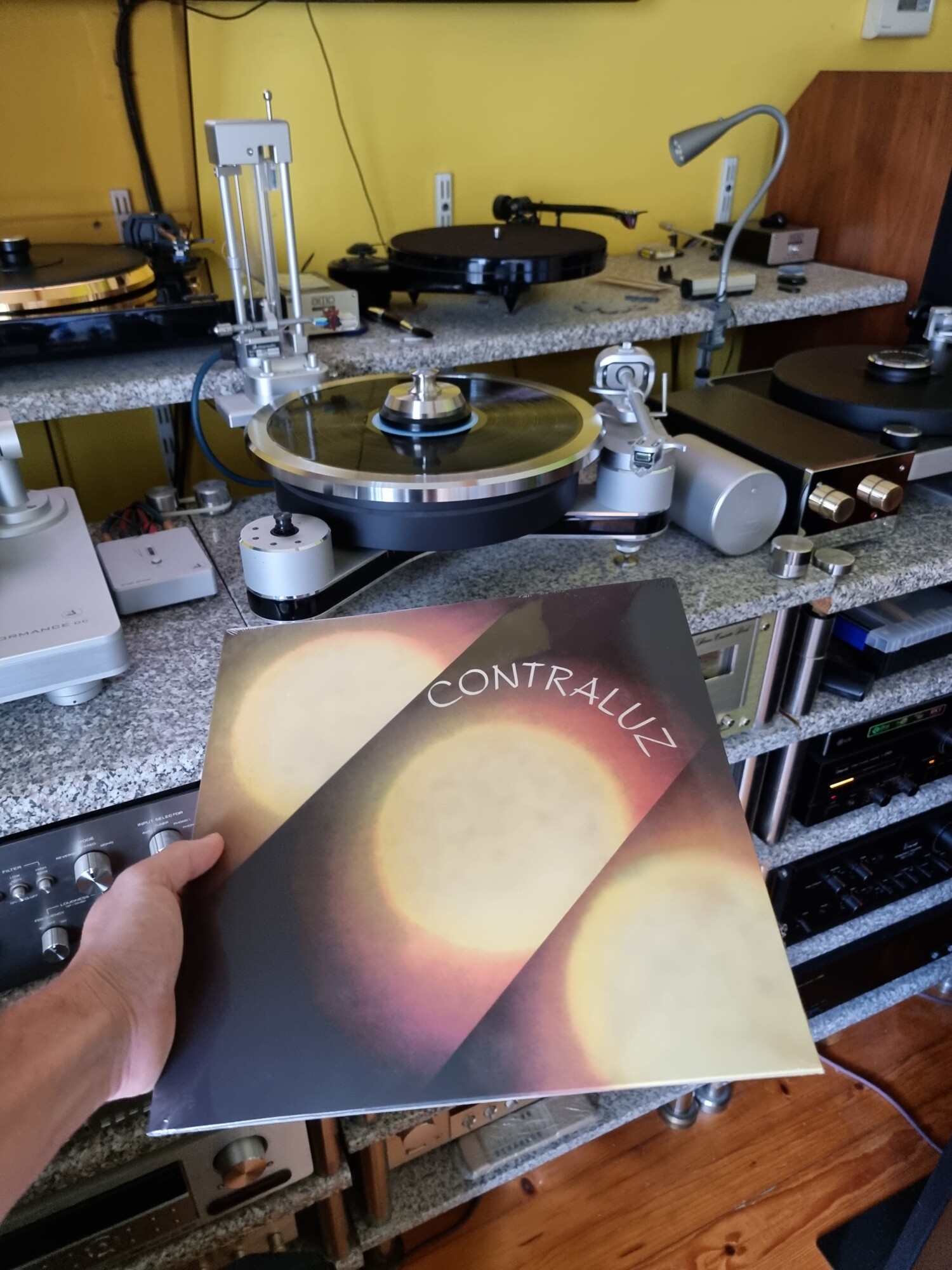
How did you get a contract with EMI? Did their agent hear you playing live or?
In order to record the album ‘Americanos’ at EMI we had to rent a theater so that the producer of the album (Jorge Álvarez) could listen to us and give his approval to the recording of the album.
“In our songs there was a criticism of the social situation in Argentina”
When you began recording you added Álvaro Cañada on vocals, while Alejandro Barzi would focus on wind instruments, and keyboards.
At the time of the recording of the album, Álvaro Cañada joined the band, who gives a very particular and unique imprint to the band, due to the power of his voice, very rarely heard in Argentine rock. A second guitar, Jorge Guarnieri, was also integrated. With the recording of the album ‘Americanos’ the band assumes a very significant commitment. At that time Alejandro Barzi was already retiring from the band due to health problems and later moved to live in southern Argentina (El Bolsón). Replacing Barzi, Gustavo Dinnerstein joined the band on flute and sax. The album ‘Americanos’ was recorded in record time, without the possibility of taking several takes of each song. Everything was very fast and handled by the producer (Billy Bond), who decided the arrangements without any consultation with the band’s musicians.
After the recording of the album, we played in several recitals with prestigious national rock artists, such as Sui Géneris (Charly García and Nito Mestre), Vox Dei, León Gieco. We performed at BAROCK I and II, which were two mega recitals of many Argentine rock bands that meet in Buenos Aires.
The main themes of Contraluz were composed by Carlos Barrio and the lyrics written by Néstor Barrio. However, there are also songs composed by Alfredo Prochnik and Alejandro Barzi. That is to say that there was a vocation for composition of all the members of the band.
In our songs there was a criticism of the social situation in Argentina and Latin America and a claim for social justice.
This committed attitude of denouncing social situations of injustice resulted in the prohibition by the Argentine government authorities so that in 1975 the release of our new album ‘Que Tu Voz Se Escuche’ would be blocked. This theme sought to send a message of peace to the guerrilla violence that was experienced in Argentina and was misinterpreted. It was a time of great violence and blind repression, to such an extent that the authorities did not understand that the song was focused on hope and had a pacifying message condemning the violence of the urban guerrilla.
It was not until the recording of this song that the band had the opportunity to participate in the recording arrangements.
The prohibition of the album was a very significant factor in discouraging the continuity of the band, since we considered that the song was going to have a very good impact on the public, since it was what we could define as a “carnavalito-rock,” that is say a song that contained elements of Argentine folklore (carnavalito) combined with rock.
Did you do a lot of gigs after the album was released?
The main concerts that the band had were with Sui Géneris at the Astral theater in Buenos Aires after the release of the album ‘Americanos’ and later in a stadium in the city of La Plata with several renowned bands of that time (including Sui Géneris).
The band also released ‘El Pasaje’ in 2000, ‘Ramos Generales’ (2003) and ‘Novus Orbis’ (2011).
In the year 2000 the band was formed again with the three main original members: Carlos Barrio (guitar and flute), Néstor Barrio (drums) and Alfredo Prochnik (bass), adding a fourth member, Jaime Fernández Madero (keyboards and vocals). In this second period of Contraluz, the band published three CDs, with a strong touch of symphonic rock. The sound changes a lot, as the keyboard and a voice very different from that of Álvaro Cañada are incorporated. In the first of those albums (‘El Pasaje’), many of the melodies of the musical compositions were by Carlos Barrio and had been partly archived and should have been recorded as part of a second album to accompany the album ‘Que Tu Voz Se Escuche’. It should be noted that in this second stage of Contraluz, the band had the opportunity to play alongside Steve Hacket at the prestigious “Coliseo” theater in the City of Buenos Aires.
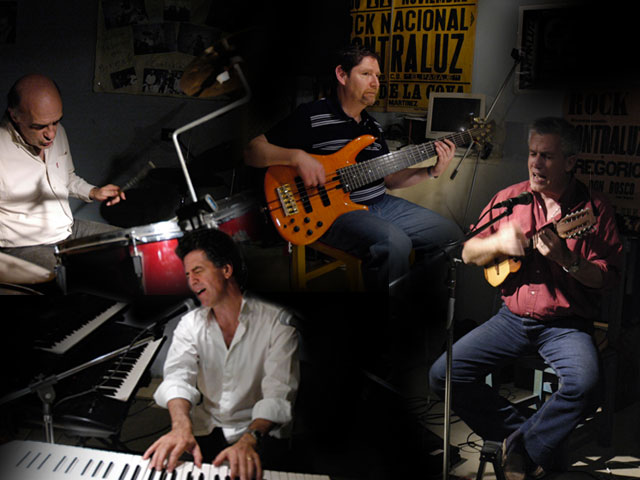
What currently occupies your life?
Currently there are members of the band who are still active: Alfredo Prochnik, plays regularly in a big jazz band in Buenos Aires; Carlos Barrio continues to compose musical themes as a soloist, like Jaime Fernández Madero. Carlos Barrio is currently recording again some songs from the album ‘Americanos,’ with new arrangements since this year 2023 marks the 50th anniversary of its edition. Carlos Barrio is going to invite the members of the band to participate in this recording.
Klemen Breznikar
PQR-Disques plusqueréel Official Website / Facebook / Bandcamp / YouTube


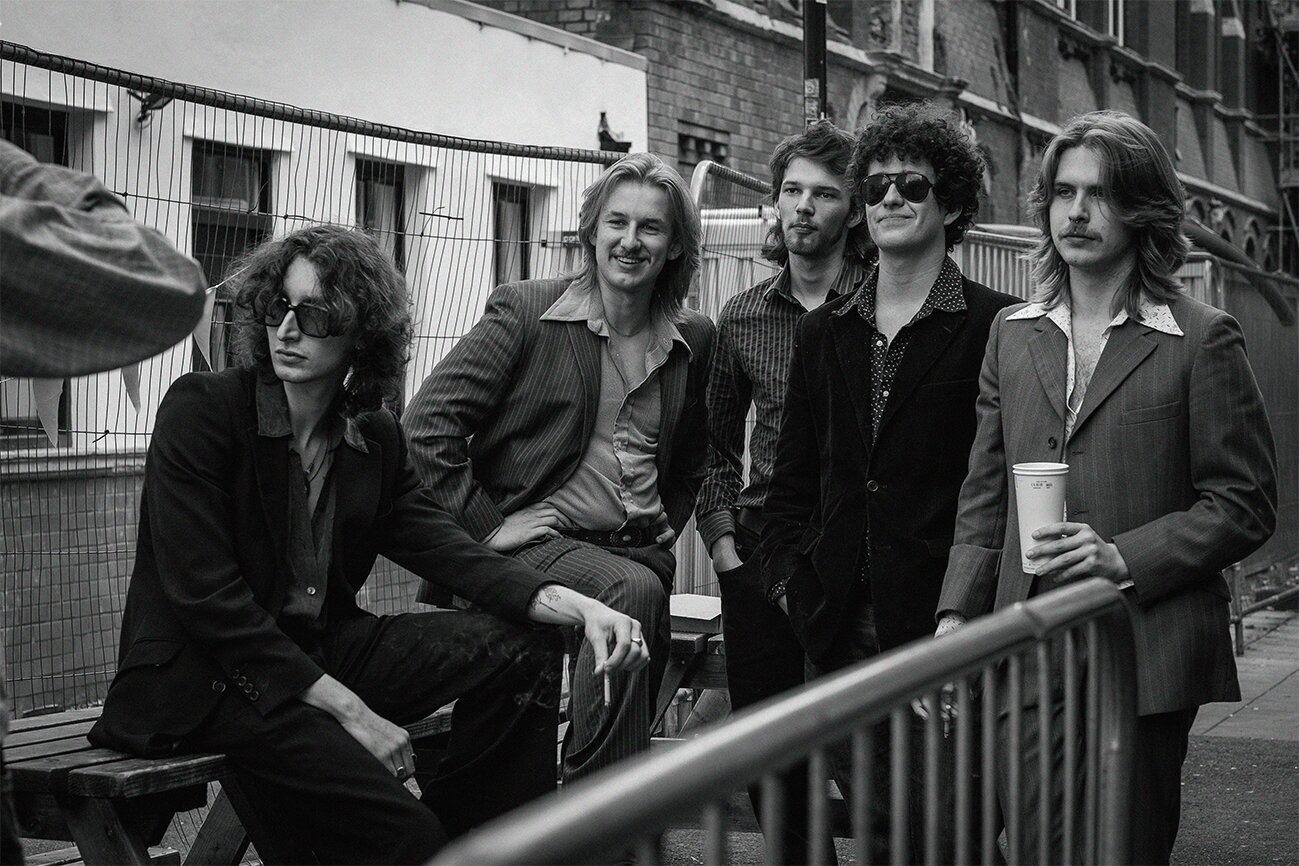
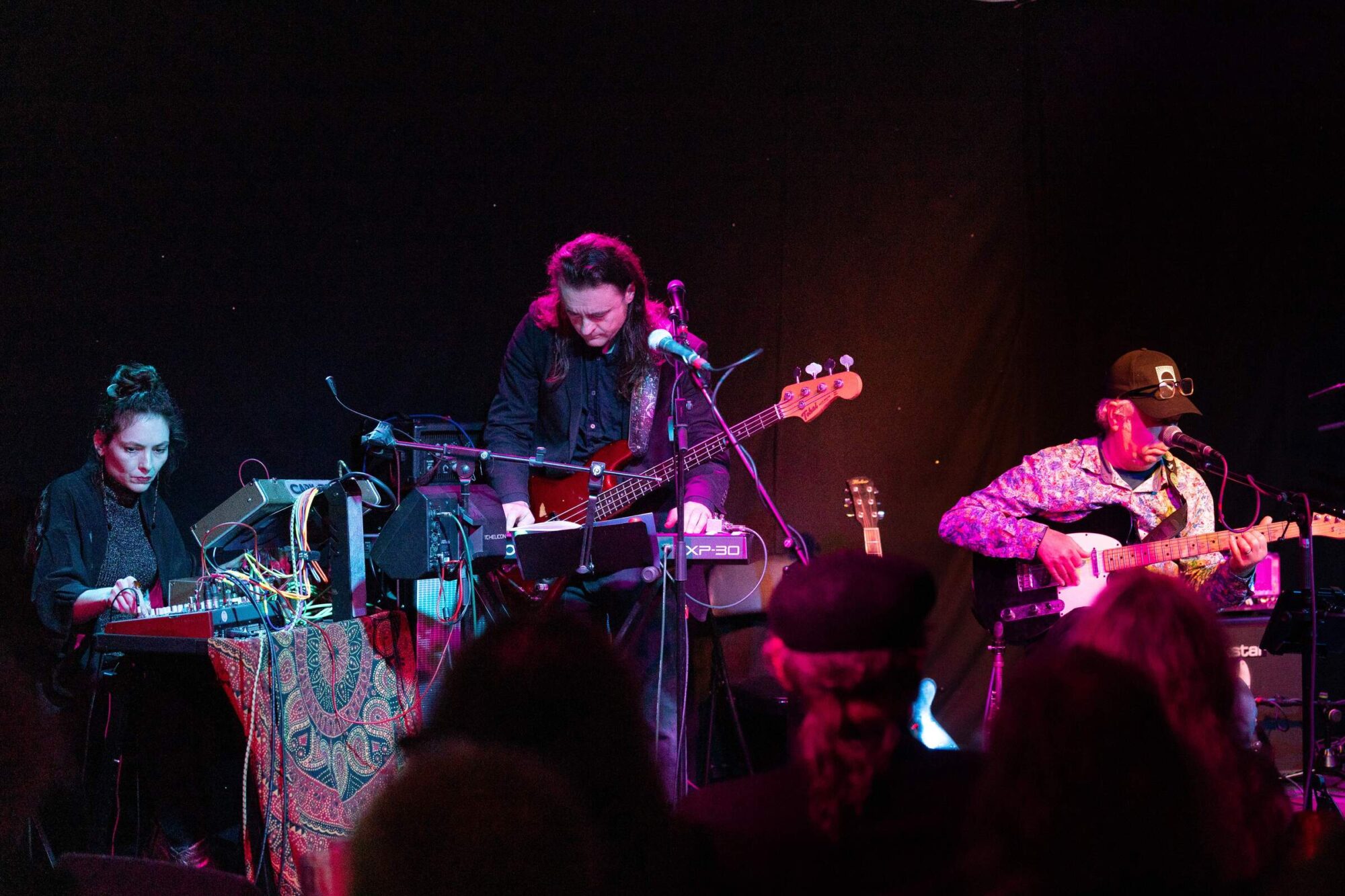
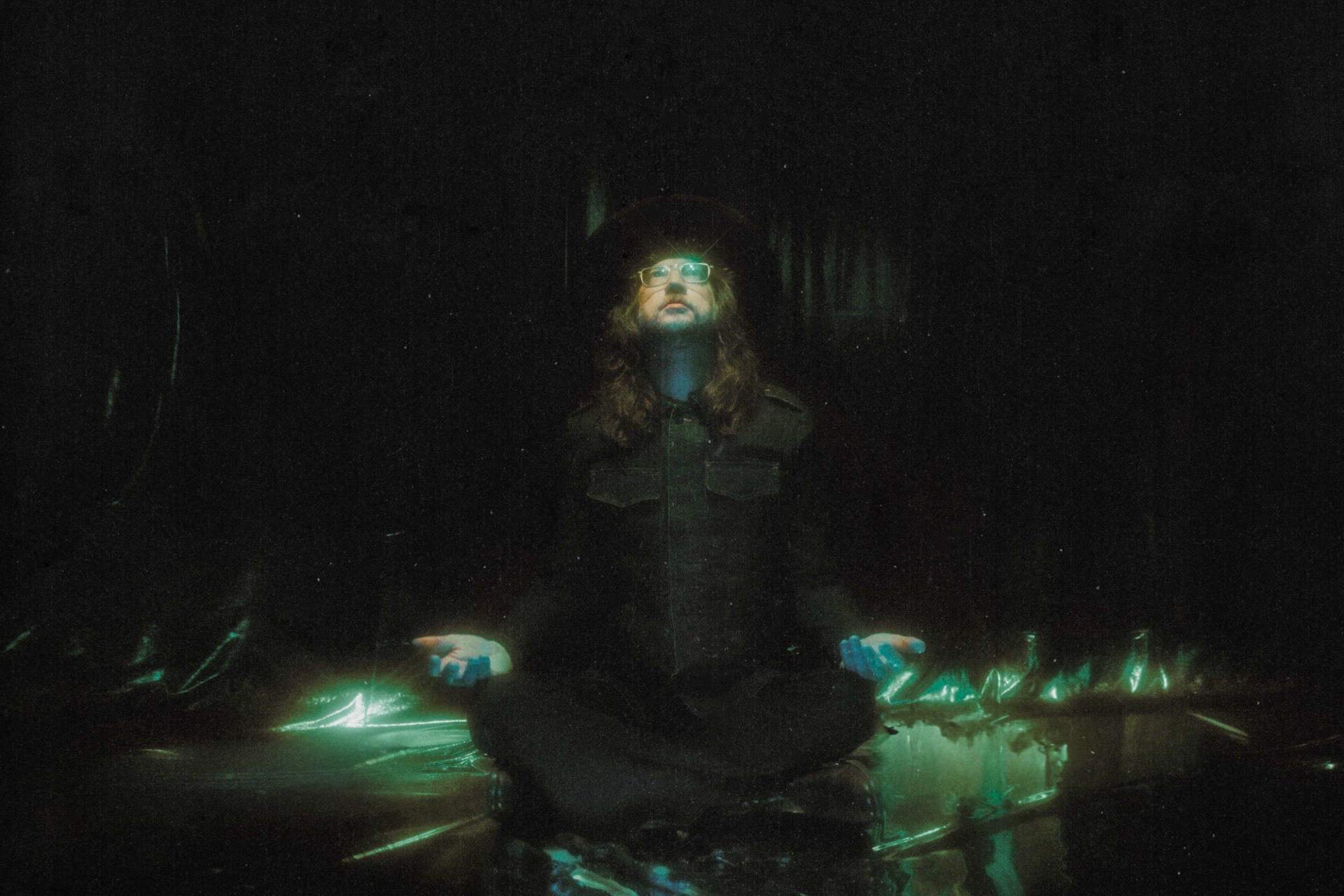
Great ! Thanks never heard before.